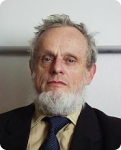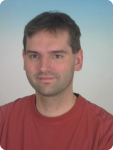
TU-Dresden, Dresden, Germany
Recent interfaces for Formal Concept Analysis
Abstract:
We report on recent developments connecting FCA with other
research areas, focussing on such with connections to Dresden. These
include approaches to Rough Sets, to Dependencies, to Machine
Learning, to Description Logics, and to Algebraic Biology. It seems
that the systematic theoretical foundation of FCA paves the way to
many different fields and that FCA has a potential to bridge some gaps
between different areas.
About the speaker:
Professor Bernhard Ganter is a pioneer of formal concept
analysis. He received his PhD in 1974 from the University
of Darmstadt, Germany, and became Professor in 1978.
Currently, he is a Professor of Mathematics and a Head of
the Algebra Institute at the Technische Universität
Dresden, Germany. His research interests are in discrete mathematics,
universal algebra, lattice theory, and formal concept analysis.
He is a co-author of the first textbook and editor of several volumes
on formal concept analysis. Recently, Professor Ganter was appointed a Scientific Co-Director of
an interactive exhibition “Adventures in Mathematics” in Dresden

Institute of Computer Science, Academy of Sciences of the Czech Republic
The GUHA method and its meaning for data mining
Abstract:
The talk presents the history and present state of the GUHA method,
its theoretical foundations and its relation and meaning for data mining.
(Joint work with M. Holena a J. Rauch.)
About the speaker:
Professor Petr Hájek is an internationally recognized expert
in mathematical logic.
He published six books and over 200 papers on logic and its
applications. In recognition of his scientific contributions,
Petr Hájek received the Medal of Merit from the President
of the Czech Republic in 2006.
Petr Hájek graduated from the Charles University in Prague in 1962.
He obtained his PhD and DSc from the Czechoslovak Academy of Sciences
and became a Professor of Mathematical Logic at the Charles
University. He worked at the Institute of Mathematics of the
Czechoslovak Academy of Sciences, and at the Institute of Computer
Science of the Academy of Sciences of the Czech Republic, of which he
was the director in 1992-2000. Currently, he is a senior researcher at
the Institute of Computer Science. He is a member of editorial boards
of several premier journals on mathematical logic. He held various
positions in professional societies, including: President of the Kurt
Godel Society and First Vice-President of the International Union for
History and Philosophy of Science, Division Logic, Methodology and
Philosophy of Science.

University of Minnesota, Twin Cities, Minneapolis, USA
Biclustering Methods meets Formal Concept Analysis
Abstract:
The purpose of this talk is to provide an overview of the problem of bi-clustering, review the various state-of-the-art methods that have been developed in recent years for solving it, and discuss how Formal Concept Analysis methods can benefit from or can be used in bi-clustering.
About the speaker:
George Karypis is an Associate Professor at the Department of Computer Science & Engineering at the University of Minnesota, Twin Cities. His research interests spans the areas of data mining, bioinformatics, cheminformatics, high performance computing, information retrieval, collaborative filtering, and scientific computing. His research has resulted in the development of software libraries for serial and parallel graph partitioning (METIS and ParMETIS), hypergraph partitioning (hMETIS), for parallel Cholesky factorization (PSPASES), for collaborative filtering-based recommendation algorithms (SUGGEST), clustering high dimensional datasets (CLUTO), finding frequent patterns in diverse datasets (PAFI), and for protein secondary structure prediction (YASSPP). He has coauthored over one hundred journal and conference papers on these topics and a book title “Introduction to Parallel Computing” (Publ. Addison Wesley, 2003, 2nd edition). In addition, he is serving on the program committees of many conferences and workshops on these topics, and on the editorial boards of the International Journal of Data Mining and Bioinformatics, the journal on Current Proteomics, and Advances in Bioinformatics.

Infobright Inc., Canada/Poland
Rough Sets and Formal Concept Analysis: Foundations and the Case Studies of Feature Subset Selection and Knowledge Structure Formation
Abstract:
The theories of Rough Sets (RS) and Formal Concept Analysis (FCA)
are well-established from the point of view of both mathematical
foundations and real-life applications. The interest in searching
for similarities and dissimilarities between RS and FCA has been
constantly growing, both with respect to pure theory, as well as
with an objective of developing hybrid techniques, better adjusted
to practical problems. In this talk, we outline introductory notions
of RS and we draw basic lines of its comparison with FCA. As the
first case study, we consider the KDD-related problem of feature
subset selection and show how to model some new approaches to
approximate selection (a more flexible and more practically
applicable extension of the classical RS-based feature subset
selection principles) in the FCA terminology. As the second case
study, we consider the latest Infobright's open source data
warehouse platform (www.infobright.org) and we discuss possibilities
of improving its performance by using new RS-FCA-based
knowledge structures automatically calculated from data.
About the speaker:
Dominik Ślȩzak received his PhD in Computer Science in 2002 from
Warsaw University, Poland. In an instructional capacity he has
successfully supervised more than 10 graduate students in Canada and
Poland. He has pursued academic collaborations with Warsaw University,
University of Regina, and the Polish-Japanese Institute of Information
Technology. Currently, he is working as chief scientist for Infobright
Inc.
Dominik serves as an associate editor and reviewer for a number of
international scientific journals, and chair of several international
scientific conferences. He has published over 50 pier-reviewed papers
for books, journals, and conference proceedings. He has delivered a
number of invited talks in Canada, China, Egypt, India, Japan, South
Korea, Poland, and the United Kingdom. His research interests are
related mainly to rough sets, data warehousing, data mining, KDD,
bioinformatics, as well as medical and multimedia data analysis.